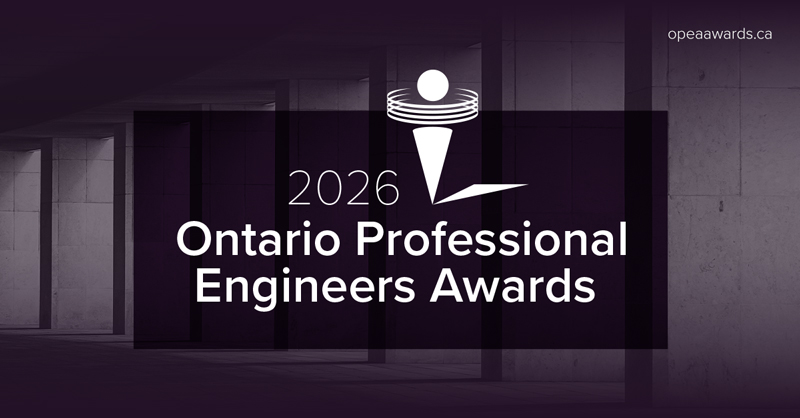The Ontario Society of Professional Engineers (OSPE) had the opportunity to meet with Andrew Dowie, Member of Provincial Parliament for Windsor–Tecumseh and the only Professional Engineer currently serving in the Legislative Assembly of Ontario. The conversation was timely, focused, and future-oriented, centered on how engineering can help shape a more innovative, equitable, and resilient Ontario.
As a legislator with a technical background, MPP Dowie understands firsthand the value of engineering insight in policy development. OSPE welcomed the opportunity to brief him on our key advocacy priorities and explore shared goals, particularly in procurement reform, professional regulation, and labour mobility.
That’s why this meeting focused on three critical areas:
1. Promoting Qualifications-Based Selection (QBS) for Infrastructure Projects
OSPE is calling for the adoption of Qualifications-Based Selection in public procurement. Unlike lowest-bid models that prioritize cost over competence, QBS evaluates firms based on their technical expertise, experience, and ability to deliver long-term value.
Why it matters:
- Reduces costly project overruns and delays
- Ensures design quality and public safety
- Saves taxpayer dollars over the project lifecycle
We urged the government to pilot QBS in select ministries and agencies. Adoption of this model is an opportunity for Ontario to demonstrate leadership in evidence-based procurement.
2. Modernizing the Professional Engineers Act
Engineering in Ontario is governed by legislation that has not kept pace with economic, demographic, and regulatory change. OSPE presented concerns with the current Professional Engineers Act and its impact on workforce access, oversight, and public protection.
Key issues include:
- Operational changes from FARPACTA that disadvantage internationally educated engineers
- Exemptions from liability insurance, exposing the public to risk
- Governance gaps at Professional Engineers Ontario (PEO), undermining transparency and effectiveness
- Long-standing concerns from Ontario’s fairness commissioner, still unresolved
Our recommendation is to consider legislative reform to modernize engineering regulation, potentially through a Professional Governance Act, as adopted in British Columbia and Alberta, to ensure accountability, consistency, and confidence in Ontario’s regulatory framework.
3. Building the Case for a National Engineering License
Ontario has a unique opportunity to lead the creation of a national engineering licensure framework that supports cross-provincial mobility without compromising safety or professionalism.
We highlighted ongoing barriers:
- Engineers on short-term contracts must pay full fees in every province
- Engineering firms must register multiple times to sell services or products across Canada
- Rigid reliance on CEAB accreditation excludes many qualified professionals
While OSPE supports the spirit of Bill 2, which promotes free trade within Canada, we believe it falls short in reducing red tape for licensed engineers. A national license—supported by consistent standards and fair pathways to licensure—would unlock productivity, address labour shortages, and improve infrastructure delivery across jurisdictions.
As the voice of Ontario’s engineering community, OSPE is committed to advancing solutions that serve the public interest while empowering engineers to do what they do best: design smart systems, solve complex problems, and build a better future.





Leave a Comment